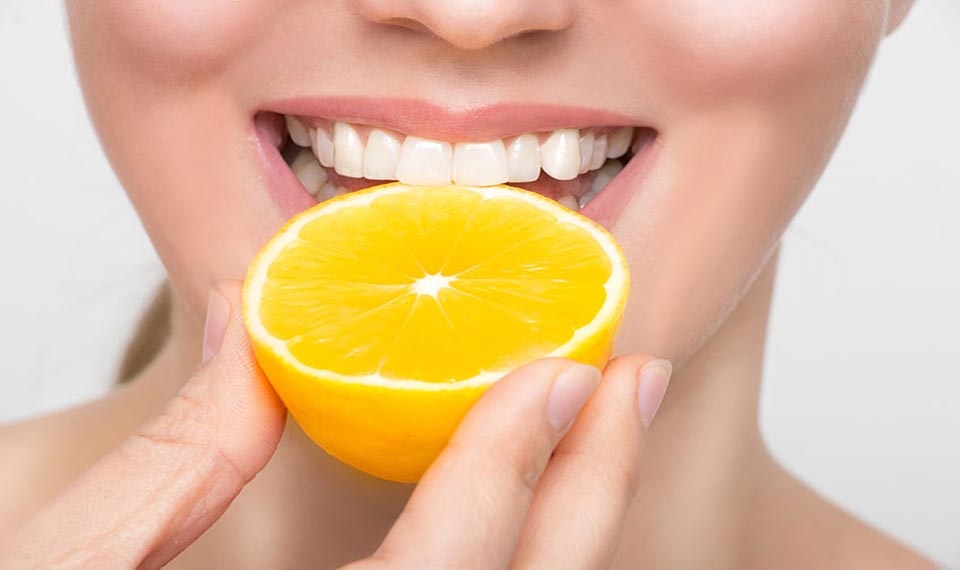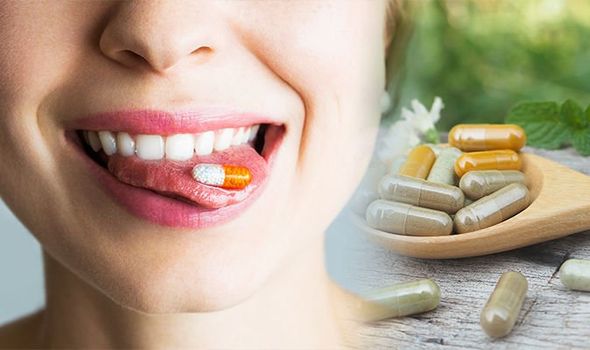Flossing and brushing are essential for good oral hygiene, but did you realize that the foods you consume (or do not consume) can also have an impact on your oral health? So, What Vitamins Are Good For Teeth? This article addresses the best vitamins for teeth, as well as foods that contain these nutrients. Fortunately, many of the foods are both natural and delicious!
Contents
Why Should You Take Teeth Vitamins?

Your mouth, gums, and gums are the first points of contact for the nutrients you consume, and they are critical for starting the digestion process. Indeed, chewing allows you to extract the maximum amount of nutrients from the food you eat, as reported by the International Journal of Environmental Research and Public Health.
Nutrient deficiencies, on the other hand, can cause oral conditions such as inflammation as well as tooth loss. This means that getting enough vitamins from supplements and food can help you have healthy gums and teeth. Here are five vitamins that are essential for good dental and gum health.
What Vitamins Are Good For Teeth?

What Vitamins Are Good For Teeth? So, here are 5 Vitamins That Are Good For Teeth You Should consume.
Phosphorus
Another important vitamin for healthy teeth is phosphorus. Phosphorus aids calcium absorption and utilization in the body and improves teeth by protecting and repairing tooth enamel. If you want to increase your phosphorus intake, try including milk, meat, and whole grains in your diet. Fish, eggs, and other protein-rich foods are also good sources. Fortunately, most people receive sufficient amounts of this vitamin from their regular diet and do not require supplements.
Vitamin D
According to a 2020 news piece, Vitamin D Deficiency and Oral Health: A Comprehensive Review, vitamin D inadequacies can lead to a variety of oral health disorders, including gingival inflammation, cavities, and gum disease. This is due to its importance in the bone as well as tooth mineralization. But don’t worry, getting enough vitamin D is simple with supplements. It is also found in oily fish such as mackerel, salmon, and herring. Additionally, some foods, such as milk and breakfast cereals, are vitamin D fortified.
Calcium
Calcium is beneficial not only to your bones but also to your teeth. Calcium is one of the most essential minerals in the human body, according to the National Institutes of Health, because it helps build and keep strong bones and teeth. Do you want to know how to consume calcium? You might be doing it already.
Dairy products, such as milk and yogurt, include a type of calcium that your body can easily absorb. Salmon and sardines in cans are also great sources. If you don’t eat meat or dairy, or if you desire to add more calcium-rich veggies to your diet, try kale, mustard greens, broccoli, collards, turnip greens, as well as bok choy or Chinese cabbage, as well as nuts like brazil nuts, sunflower seeds, almonds, and tahini.
To keep the calcium in these foods, cook them in a limited amount of water for a brief time, such as steaming or sautéing, rather than boiling. You can also take calcium supplements as well.
Vitamin A
What Vitamins Are Good For Teeth? Vitamin A is not only beneficial to your eyes and skin, but it is also beneficial to your mouth, particularly saliva production. Saliva aids in the digestion of food and also sanitizes bacteria from between your teeth. Vitamin A can be found in orange-colored vegetables and fruits such as carrots, sweet potatoes, and bell peppers, as well as fish and egg yolks. It’s also available as an add-on.
Vitamin C
Vitamin C is not only beneficial to your teeth; it is also beneficial to your gums. Vitamin C helps maintain the health and strength of the tendons and ligaments in your gums, which hold your teeth in place—deficiencies can result in bleeding gums and gum disease. Furthermore, vitamin C supplements lowered erosive tooth wear in children. Vitamin C is abundant in citrus fruits, berries, sweet potatoes, peppers, broccoli, and kale, so you’re probably getting plenty of it. Supplements are widely available as well.
When Should You Take Vitamins?

Many of these vitamins for teeth and gums can be obtained from a healthy diet. Taking supplements, on the other hand, maybe a better choice in some cases. If you’re unsure whether you should take a supplement, consult your dentist or physician because some dietary supplements might very well interact or interfere with prescription medications.
In conclusion
You’re probably already getting a lot of these tooth-friendly nutrients if you eat a healthy, healthy diet full of whole fruits and vegetables. If you’re worried about your vitamin levels, talk to your dentist about just what supplements or foods you could incorporate into your diet.
I hope that this article can already answer the question What Vitamins Are Good For Teeth? for you. Understanding how well these vitamins affect your teeth can improve your oral health in the long run. Now that you know what vitamins are important for your oral health, why not try a tasty new recipe that incorporates these nutrient-dense foods?

